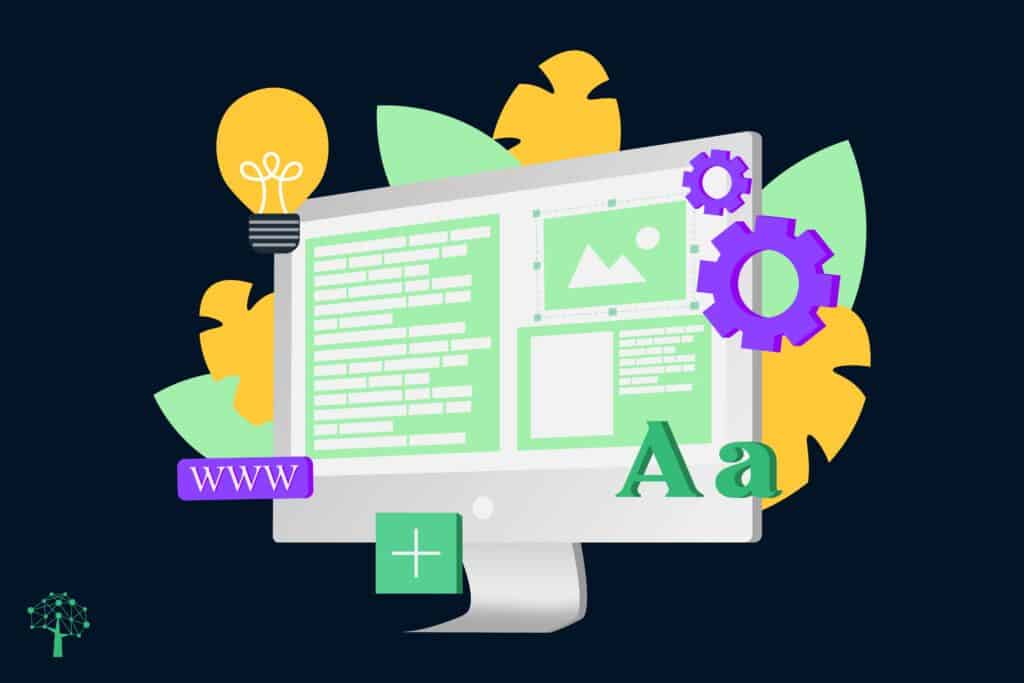Are you knee-deep in the process of putting together a reviews website and feeling somewhat stumped about which programming language to choose? You’re in good company. This decision has left many feeling bewildered.
Stack Overflow’s Developer Survey suggests that JavaScript has been the top dog for ten consecutive years, but does that make it the golden ticket for your specific project? In this blog post, we’ll compare some serious heavyweights: JavaScript, Python, and PHP, among others.
Table of Contents
Factors to Consider

When choosing the best programming language for a reviews website, there are several important factors to consider.
Ease of Use and Mastery
Choosing a programming language can be tough. It’s not just about the project needs but also how easy it is to learn and use the code. Some languages are friendlier for beginners.
Others might take more time to master but offer more power in return. The quicker you grasp a language, the faster you can build and roll out your reviews website. So, before picking one, think about your own skill level or that of your team.

Can you handle a steep learning curve? Or do you need something simple to start with? But don’t forget! There’s no perfect choice here – only what suits your needs best at this point in time.
Demand in the industry
I notice many programming languages are in high demand in the tech industry. Job openings for Python, SQL, and Java skills are over 50,000! Every business needs coding skills nowadays.
I see this need in fields like auto-making and even cell biology.
The job market tells us what the best coding languages to learn are. It looks at things like how much demand there is for certain skills or prospects for getting a good job. We also look at the year 2025 – we think that the top ten languages will still be very popular then!
Maintainability
We place a high value on maintainability. It is key to pick a language for your reviews site that makes fixing bugs easy. This will help solve issues fast and keep the website up-to-date.
Code that is too complex can cause delays and mistakes, which costs money. But with clean code written in an organised way (modularity), you save time and effort. I advise using the YAGNI rule – don’t write features you won’t use! Pair this with good habits like testing often (robustness) and keeping your code tidy (consistency).
You also want a language that can grow as needed (scalability) but stay easy to read (readability). Above all, make sure there are helpful guides available online (documentation).
With all these points checked, your code will be much easier to upkeep.
Scalability and Performance
Scalability and performance are keys to a good reviews website. They allow your site to run fast and manage more work as it grows. In real terms, performance tells us how quickly a system can reply.
Scalability is about how well the system can take on more workloads. While these aspects link more with system design than the language used, some languages aid better in these areas.
Good examples include those with strong support for action at the same time (concurrency) or ones that balance loads well. If there’s little room to grow in size (scale), then the speed (performance) of your chosen language becomes much more vital.
Complexity of the Project
Selecting the right coding language for your review site is closely tied to your project’s complexity. Big and intricate projects demand sturdy, powerful languages. Small ones might work well with simpler choices.
Each programming language carries its own degree of difficulty, shaped by its syntax and other factors. If a language seems too hard or confusing, it can slow down the build time. We need to weigh this when choosing our toolset for the task ahead.
Specific needs of the review website also guide us here – some languages are better fit for certain jobs than others. So, we must think deeply about what our website wants to be able to do before we make that vital decision on which language makes the most sense for us.
Relevance to Website Features
The type of site you are making matters a lot. If it’s a review website, the features needed will drive your coding choices. Think about what users do on your site. Will they make lists? Do they rate things or share comments? These actions need the right code to work well.
Some coding languages shine for different tasks. For example, Java is often used for bigger sites with heavy traffic. Python is great for data analysis and machine learning tasks. JavaScript helps to create interactive web pages that react when users engage with them.
Pick the one that fits best with your website needs.
Doing this keeps your site working well and easy to fix if something breaks down.
For safer, smoother working websites, think about how each language handles safety, too!
Best Programming Language for a Reviews Website

When it comes to choosing the best programming language for a review website, there are several factors to consider.
JavaScript
JavaScript is a top pick for review websites. It’s the most used language in the world, and it’s easy to see why. With JavaScript, you can add fancy bits that spring to life when your site loads – this is called dynamic interactions.
Your website can change on its own using this smart scripting language. This makes your page fresh and lively all the time! In web development, JavaScript helps build cool interactive pages that spark joy in users’ eyes.
So, if you want an engaging review website that keeps people coming back, go for JavaScript!
Python
Python is one of the best programming languages for a review website. It is widely used in software development, website development, system automation, and data analysis. Python’s simplicity and ease of use make it an ideal choice for beginners in coding.
It has a versatile syntax that supports multiple programming paradigms. With its high-level built-in data structures, Python allows efficient manipulation and analysis of data. Many businesses rely on Python to build websites and software, as well as automate tasks.
PHP
PHP is a scripting language that is commonly used for web development. It is an open-source language, which means it can be modified and customized according to the needs of the developer.
PHP is highly flexible and easy to learn, making it suitable for beginners in programming. It is often used for creating dynamic and interactive websites, as well as eCommerce platforms and applications.
One of the advantages of PHP is its ability to easily integrate with content management systems (CMS), making it convenient for creating and managing website content. So, if you are a business owner or marketing manager looking to build a reviews website, PHP can be a great choice due to its versatility and customization options.
Ruby
Ruby is considered one of the best programming languages for a review website. It is great for building both desktop applications and web development. Ruby on Rails, a web application framework written in Ruby, exploded onto the web development scene in the early 2000s.
Developers prefer using Ruby because it allows them to write concise and clean code. With Ruby, you can create websites, desktop apps, data processing services, and more.
Java
Java is a widely used programming language that has been popular among developers for over two decades. It is known for its platform independence and object-oriented nature, making it suitable for coding web applications.
With its wide adoption and extensive community support, Java has become one of the most popular programming languages in the world. Developed by Sun Microsystems in the early 1990s, Java offers a reliable and scalable solution for building a reviews website.
Go
Go is a programming language developed by Google. It’s known for its fast compilation speed and the ability to compile code into a native binary. This makes it an excellent choice for building web applications.
Go is relatively new compared to other languages, but it has gained popularity due to its simplicity and efficiency. As an open-source language, it offers developers flexibility and access to a supportive community.
If you’re looking for a programming language that can help you build fast and reliable web applications, Go should definitely be on your list of options.
Comparison of Programming Languages
In this section, we will compare the different programming languages and delve into their pros and cons. Which language is best suited for a reviews website? Read on to find out.
Pros and Cons of Each Language
Here are the pros and cons of each programming language for a review website:
- JavaScript:
- Pros: Widely used for web development, can run on any browser and is good for creating interactive features.
- Cons: It can be complex for beginners and may have security vulnerabilities.
- Python:
- Pros: Easy to learn and read, has a large community support, suitable for various tasks including web development.
- Cons: Slower compared to other languages, may require additional resources for scalability.
- PHP:
- Pros: Specifically designed for web development, widely supported by hosting providers, good for dynamic websites.
- Cons: It has some inconsistent coding practices and is not as popular as before.
- Ruby:
- Pros: Known for its simplicity and readability, it strongly emphasises developer productivity.
- Cons: Slower compared to other languages, fewer resources available compared to more popular languages.
- Java:
- Pros: Highly scalable and reliable, widely used in enterprise-level applications.
- Cons: Requires a lot of code to accomplish simple tasks, declining in popularity compared to newer languages like Python.
- Go:
- Pros: Known for its speed and efficiency, it was designed simply.
- Cons: It may have a smaller community compared to more established languages.
Suitable Use Cases for Each Language
As a business owner, marketing manager, software developer, or marketeer, you may be wondering which programming language is suitable for your reviews website. Here are some use cases for each language to help you make an informed decision:
- JavaScript:
- Front-end development for dynamic and interactive user interfaces.
- Adding functionality to web pages and creating responsive designs.
- Python:
- Backend development for handling data processing and logic.
- Building complex algorithms and integrating them with databases.
- PHP:
- Server-side scripting for web development.
- Implementing forms, managing sessions, and interacting with databases.
- Ruby:
- Backend programming with a focus on object-oriented development.
- Developing scalable web applications and APIs.
- Java:
- Building large-scale enterprise applications.
- Creating Android mobile apps and working on server-side development.
- Go:
- High-performance web services and backend systems.
- Concurrency – heavy applications requiring efficient execution
Additional Considerations
When choosing the best programming language for a reviews website, it’s important to consider integration with existing systems, community support and resources, and availability of frameworks and libraries.
These factors can greatly impact the success and efficiency of your development process. So keep reading to explore these additional considerations in more detail!

Integration With Existing Systems
System integration is the process of linking different systems and applications together so that they can work as a unified unit. It’s like making them talk to each other seamlessly.
This can be very beneficial for a review website because it allows different systems to collaborate, share data, and communicate effectively. By integrating existing systems, you can streamline your operations and improve efficiency.
It also helps with tasks like data sharing, performance tracking, and seamless collaboration. So when choosing the best programming language for your reviews website, consider its ability to integrate well with your existing systems.
Community Support and Resources
As a business owner, marketing manager, software developer, or marketeer, community support and resources are crucial factors to consider when selecting the best programming language for a review website.
Having a supportive community means that you can turn to other experts in the field for help and guidance. It also ensures that there are available resources such as documentation, tutorials, and forums where you can find answers to your questions.
Additionally, being part of a vibrant community allows you to stay updated with the latest trends and advancements in programming languages. This is particularly important because technology evolves quickly, and staying ahead can give you a competitive edge.
Availability of Frameworks and Libraries
Frameworks and libraries play a crucial role in developing software for a review website. They provide pre-built code and tools that can be used to build different features of the website, such as user authentication, data storage, and search functionality.
Libraries are written in various programming languages and can be used by programs written in the same or different languages. Open-source frameworks offer a wide range of resources for developers, including documentation, tutorials, and community support.
Backend frameworks are particularly important for web development as they help with server-side processing and database management. It is essential to consider the availability of frameworks and libraries when choosing a programming language for your reviews website as it affects the ease of development, maintenance, scalability, and performance of your system.
Conclusion
In conclusion, when choosing the best programming language for a reviews website, factors such as ease of use and demand in the industry should be considered. JavaScript, Python, and PHP are popular choices for web development.
Python is known for its simplicity and readability, while JavaScript is commonly used for interactivity on web pages. Ultimately, the choice will depend on specific requirements and developer expertise.


